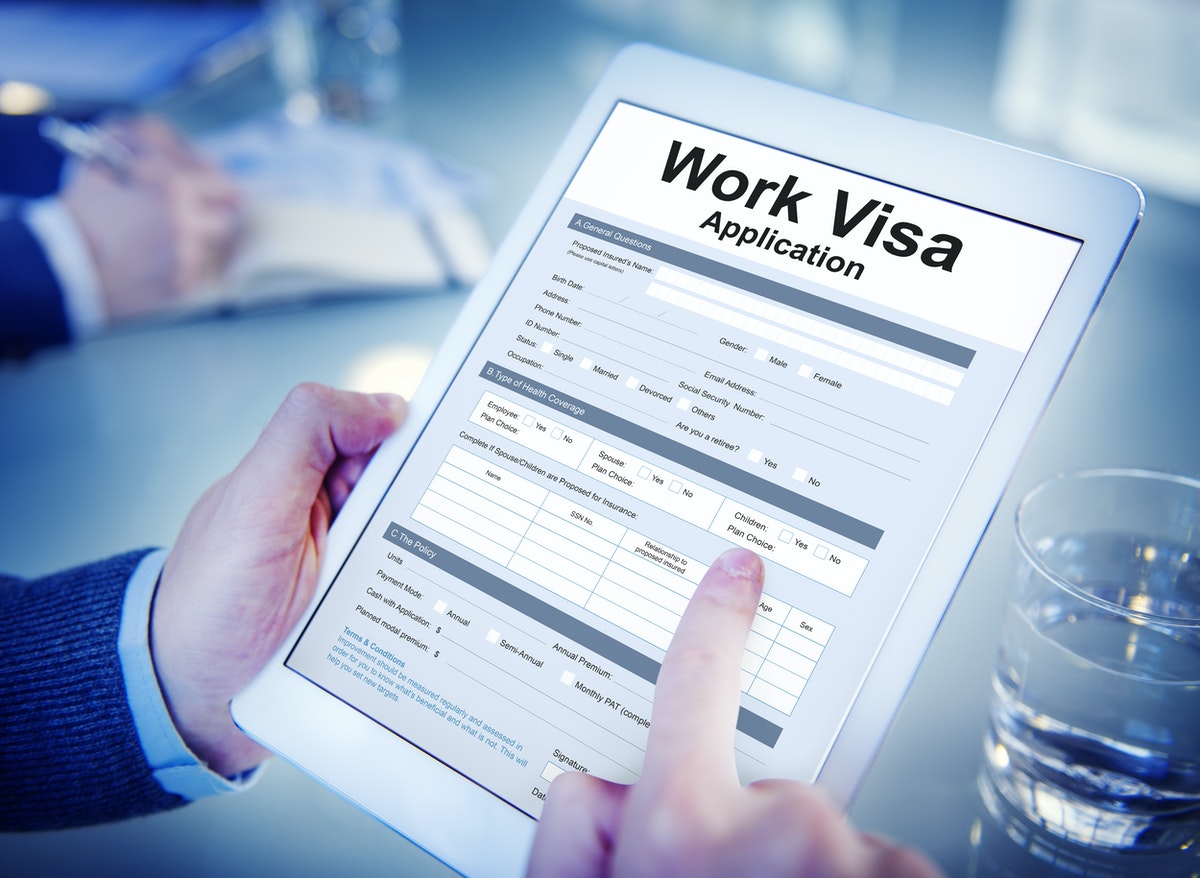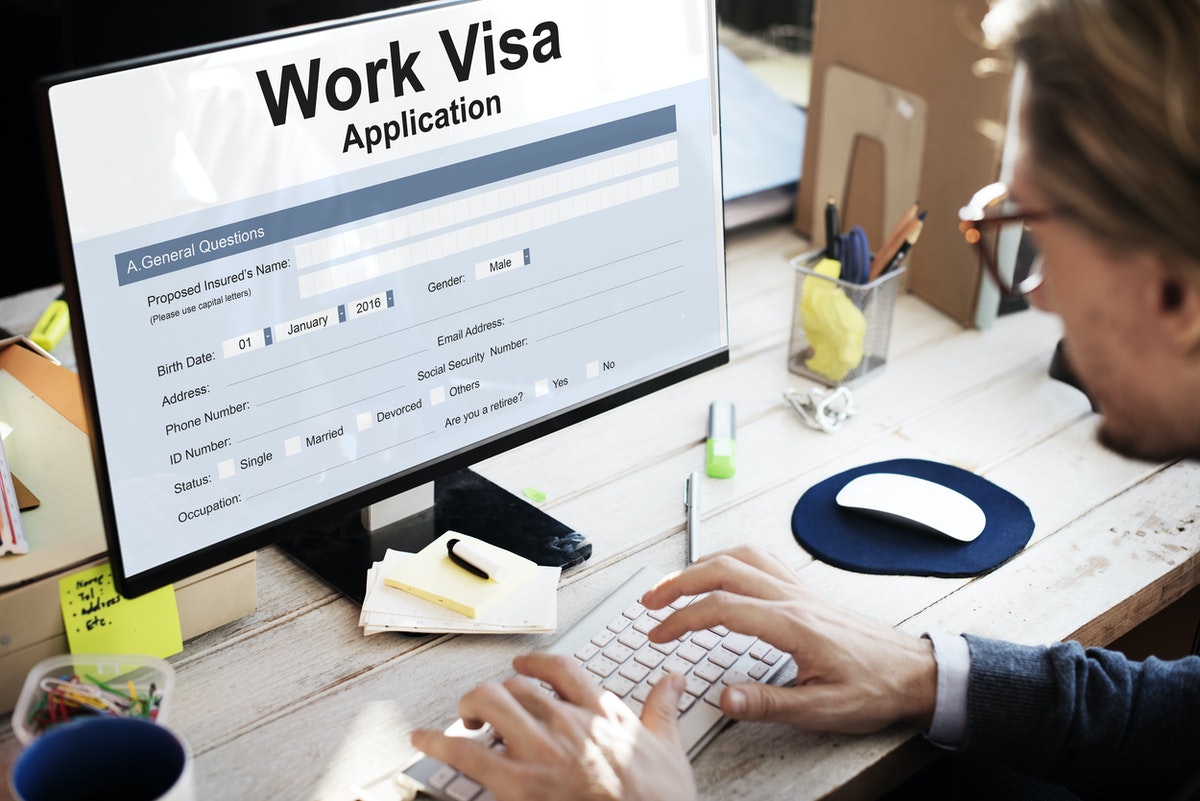U.S Work Visa Categories: Job Opportunities

U.S Work Visa Categories: Immigrant or Nonimmigrant Visa
U.S work visa categories are the types of visas that millions of aliens apply every year. A visa is "an insignia placed on the passport that the domestic government thereby permits the alien to proceed into the country." Many countries require a visa before admitting an alien into their countries.
U.S Work Visa Categories
If you are not a U.S. citizen and do not come from a country where the U.S. does not require a visa, you generally must apply for a visa from the U.S. Department of State.
Millions of non-US citizens want to come to the United States to find a job each year. If an alien has the right combination of skills, education, and/or work experience, they can permanently live and work in the USA. (Permanent Workers)
If your prospective employer files a petition (I-129) with USCIS on your behalf, you can come to the United States lawfully as a nonimmigrant to work temporarily in the United States. the F-1 and M-1 student and J-1 exchange visitor classifications (in certain instances, for example, in-campus works, T.N, and the nonimmigrant E-1, E-2, E-3 categories do not need an employer having first filed a petition with USCIS on your behalf. (Temporary/Nonimmigrant Workers). Nonimmigrant visas are the most applied type of visa in the U.S work visa categories.

U.S work visa categories: Immigrant or Nonimmigrant Visa
F-1 students may not work off-campus during the first academic year but may accept on-campus employment subject to certain conditions and restrictions. After completing the first academic year, F-1 students may engage in three types of off-campus employment:
- Curricular Practical Training (CPT)
- Optional Practical Training (OPT)
- Science, Technology, Engineering, and Mathematics (STEM) Optional Practical Training Extension (OPT)
- Severe economic hardship.
As of February 2021, there are 21 different types of nonimmigrant-temporary visas under the Nonimmigrant Classification.
Temporary Worker Visa Preference Categories and Descriptions
CW-1: CNMI-Only transitional worker
E-1: Treaty traders and qualified employees.
E-2: Treaty investors and qualified employees.
E-2C: Long-term foreign investors in the CNMI
E-3: Certain "specialty occupation" professionals from Australia.
U.S Work Visa Categories: H-1B Visas
H-1B: Workers in a specialty occupation and the following sub-classifications:
H-1B1 - Free Trade Agreement workers in a specialty occupation from Chile and Singapore.
H-1B2 - Specialty occupations related to Department of Defense Cooperative Research and Development projects or Co-production projects.
H-1B3 - Fashion models of distinguished merit and ability.
H-1B category requires a higher education degree or its equivalent. Distinguish fashion models, researchers of the Department of Defense projects can apply for this category. H1-B (H-1B1, H-1B2, H-1B3) visas are widely in demand within the U.S work visa categories.
H-2A: Temporary or seasonal agricultural workers.
H-2B: Temporary non-agricultural workers.
H-3: Trainees other than medical or academic. This classification also applies to practical training in the education of disabled children.
I: Representatives of foreign press, radio, film, or other foreign information media.
L-1A: Intracompany transferees in managerial or executive positions.
L-1B: Intracompany transferees in positions utilizing specialized knowledge.
O-1: Persons with extraordinary ability in sciences, arts, education, business, athletics, and motion picture or T.V. production.
O-2: Persons accompanying solely to assist an O-1 nonimmigrant.
P-1A: Internationally recognized athletes.
P-1B: Internationally recognized entertainers or members of internationally recognized entertainment groups.
P-2: Individual performer or part of a group entering to perform under a reciprocal exchange program.
P-3: Artists or entertainers, either an individual or group, to perform, teach, or coach under a culturally unique program.
Q-1: Persons participating in an international cultural exchange program to provide practical training, employment and to share the history, culture, and traditions of the alien's home country.
R-1: Religious workers.
TN: North American Free Trade Agreement (NAFTA) temporary professionals from Mexico and Canada. T.N. visa requests are prevalent in Canada and Mexico within the U.S work visa categories. (Source: https://www.uscis.gov.)

U.S work visa categories: (Employment Based-EB) Visa or (M, F, J) Visa
Permanent Worker (Employment Based-EB) Visa Preference Categories
Roughly 140,000 immigrant visas are available each fiscal year for aliens who want to immigrate based on their job skills to the United States.
Students and Exchange Visitors
People who wish to join full-time academic or vocational studies in the United States may apply for one of two nonimmigrant student categories: The "F" visa or "M" visa.
Temporary Visitors for Business
We will explain EB visa categories in the next blog.
In a nutshell
U.S work visa categories are the types of visas that millions of foreigners apply for every year. If you are an alien, you generally must apply for a visa from the U.S. Department of State. If an alien has the right combination of skills, education, and/or work experience, they can permanently live and work in the USA. (Permanent Workers) If your prospective employer files a petition (I-129) with USCIS on your behalf, you can come to the United States lawfully as a nonimmigrant to work temporarily in the United States. (Temporary/Nonimmigrant Workers). Roughly 140,000 immigrant visas are available each fiscal year for aliens who want to immigrate based on their job skills to the U.S. There are 5 (EB-1 to 5) permanent worker (Employment Based-EB) visa preference categories. The "F" visa is for academic students, and the "M" visa is for vocational participants. If you are an exchange visitor, the J visa program is for educational and cultural exchange programs.
As A Team, We Are Ready to Help You!
To start and run your business in the USA, you need a lot of documentation to be prepared. When applying for one of the U.S work visa categories or any visa, we can help you. You cannot be an expert in every subject you need. An expert consulting firm you can trust will save you time and money.
Before buying, franchising, or starting a business, our business consulting team can help you avoid any possible problem.
Comprised of experienced business attorneys, marketing experts, business advisors, and blockchain professionals, Liberty Business has the answers to any questions or needs a blossoming business may have.
